
by Cora Buhlert
Of Geese, Saints and Lanterns
November 11 is St. Martin's Day or Martinmas, a popular holiday in many parts of West Germany.
For those of you not familiar with Roman Catholic saints, St. Martin was a Roman soldier who converted to Christianity and became bishop of Tours in the fourth century AD. According to legend, he cut his cloak in half with his sword to share it with a naked beggar.



In West Germany, St. Martin's Day is traditionally celebrated with a procession of children singing and carrying paper lanterns. In some regions, the children go from house to house to ask for sweets similar to trick or treating in the US. In other regions, the night ends with a St. Martin bonfire.
At home, the family enjoys a roast goose, traditionally served with dumplings and red cabbage, in reference to another legend associated with St. Martin, namely that he hid in a goose shed in order to avoid being elected bishop. However, as anybody who has ever encountered them knows, geese tend to be very noisy and so St. Martin was found and elected bishop anyway.

A Mysterious Discovery
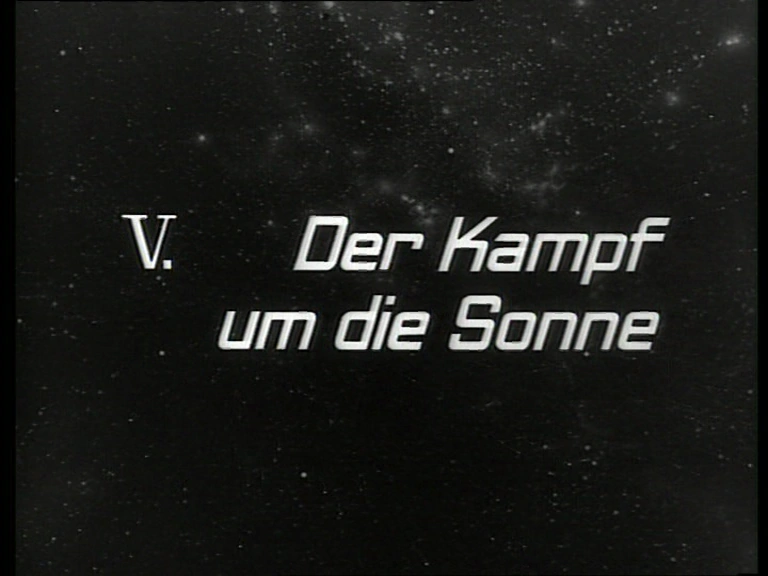
However, West German science fiction fans were a lot more excited about the day after St. Martin's Day, because the latest episode of Raumpatrouille: Die phantastischen Abenteuer des Raumschiffs Orion (Space Patrol: The Fantastic Adventures of the Spaceship Orion) aired.
"Der Kampf um die Sonne" (Battle for the Sun) plunges us right in medias res, when the Orion makes a remarkable discovery. The planetoid N116a has uncommonly high temperatures, a breathable atmosphere and lower forms of plant life, all of which should be impossible, since N116a is supposed to be a dead rock in space.
Security officer Tamara Jagellovsk (Eva Pflug) points out that the general staff has been conferring for weeks now and wonders whether the Orion's discovery might have anything to do with this. At any rate, it's a mystery worth investigating, so Tamara officially authorises Commander Cliff Alister McLane (Dietmar Schönherr) to land on N116a (once again portrayed by a spoil tip in Peißenberg, Bavaria) and take samples.
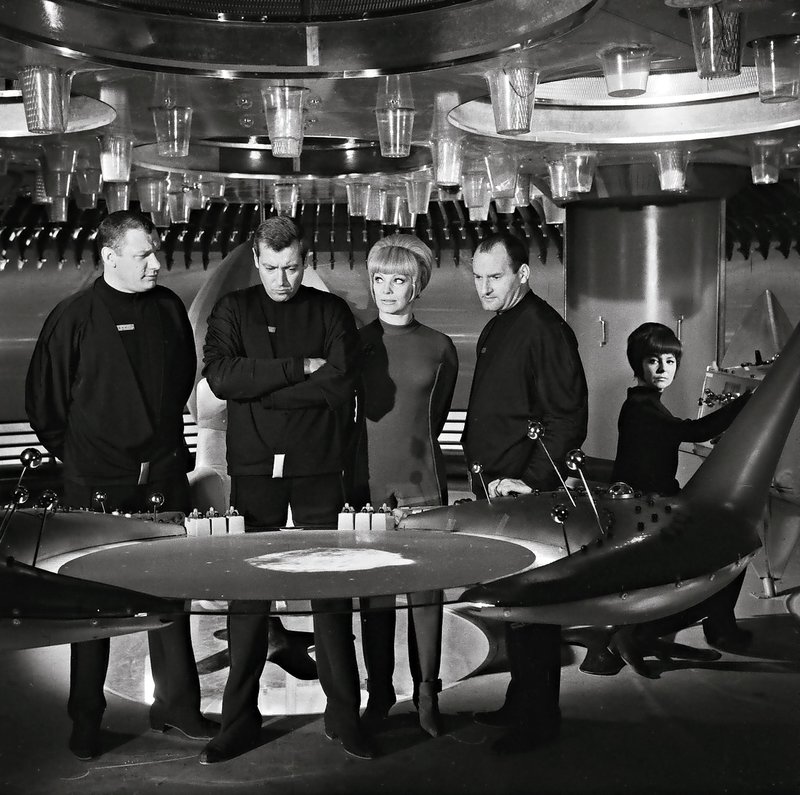
Tamara and McLane still banter and argue a lot. However, by now the banter is a lot friendlier and – dare I say it – flirtatious. This is not lost on the rest of the Orion crew, who watch the sparks fly with a mixture of amusement (Hasso and Mario) and jealousy (Helga Legrelle). Indeed, Helga (Ursula Lillig) decides to tease Tamara by elaborating in great detail about all the time she spent with McLane while on leave. Though McLane is not a good dancer, Helga notes, because he refuses to let himself go.
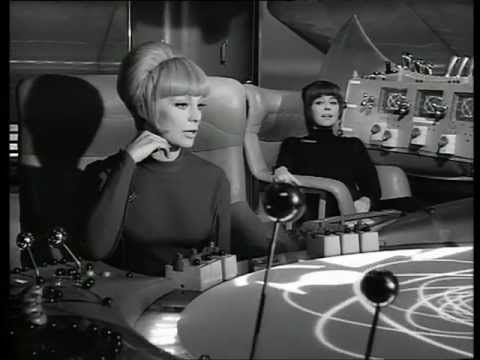
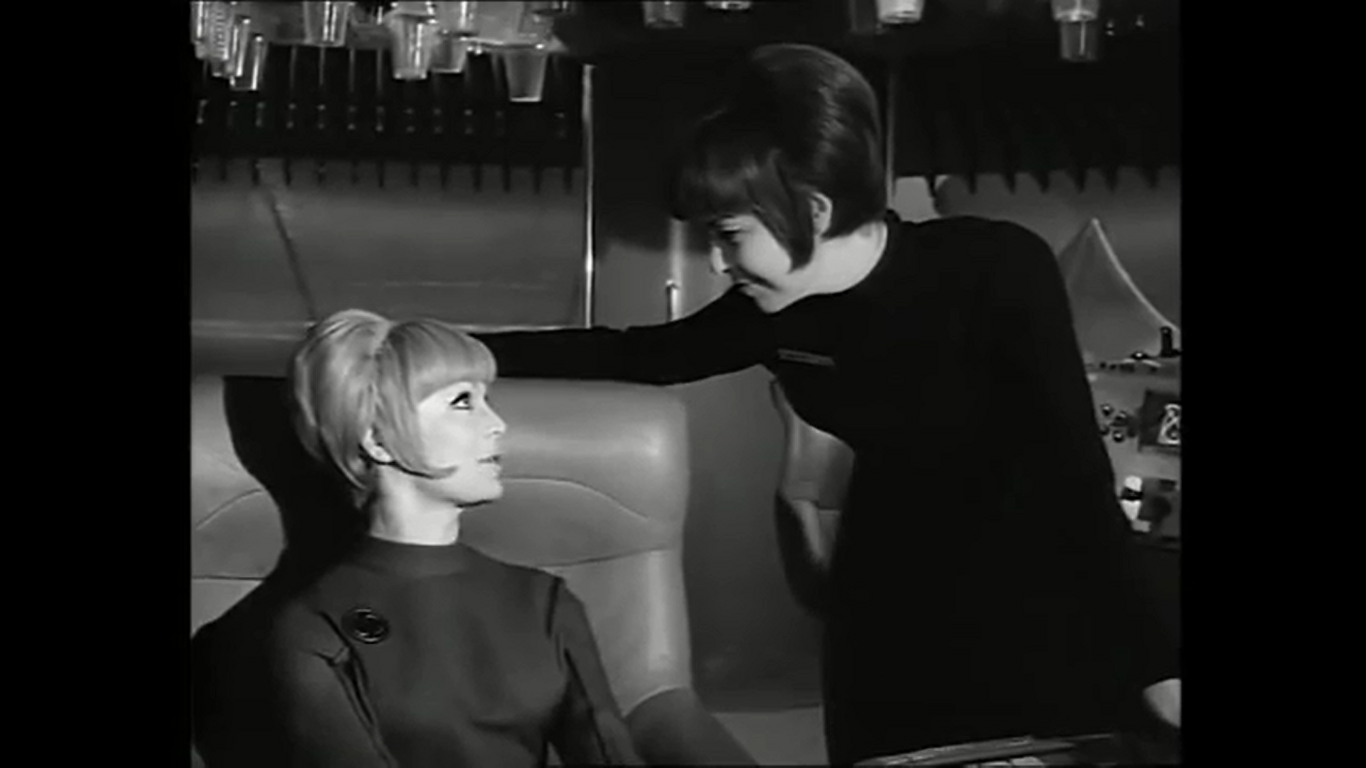
Putting the Science in Science Fiction
The scene switches to Earth, where familiar faces such as General Wamsler (Benno Sterzenbach) and Colonel Villa (Friedrich Joloff) are conferring about an alarming phenomenon. The activity of the sun and the frequency and duration of solar flares have increased dramatically, causing the Earth to heat up. The majority of humanity lives on the ocean floor and are insulated from the intense heatwaves. But the polar caps are about the melt, causing the sea levels to rise, which will lead to massive floods. Furthermore, the intense heat will turn Earth's surface into desert. The Orion's discovery on N116a confirms those theories. The big question is, who or what is causing the increased solar activity? Is it a natural phenomenon or is someone manipulating the sun? And if so, who? The Frogs are out, since they live in a distant star system. So are there other unknown extraterrestrials out there?
Orion may emphasise the "fiction" in "science fiction", but there is solid science behind the Earth heating up. Earth's climate tends to oscillate widely from ice ages to warm periods. Charles Greeley Abbot theorized that changes in climate are linked to sun spot activity – a theory that Orion borrowed for this episode. However, a far more likely culprit is the so-called "greenhouse effect", i.e. carbon dioxide in atmosphere functioning like the glass panes of a greenhouse, causing the Earth to heat up, which was discovered by Svante Arrhenius in 1896. In recent years, Roger Revelle and Charles David Keeling have proven that carbon dioxide levels in the atmosphere are rising, due to emissions from industry and traffic, and that the greenhouse effect is real. Edward Teller warns that if carbon dioxide emissions keep rising, heatwaves, melting polar caps and rising sea levels will become a genuine problem in our future and not just a plot for a TV series. [The threat of a catastrophic heating on a global scale was the topic of one of our earliest articles (ed.)]
The generals need more data, so the Orion is sent to take more samples. On the planetoid N108, the Orion crew makes an even more remarkable discovery: a shuttlecraft of a type unknown to them. When Atan Shubashi (F.G. Beckhaus) investigates the mysterious craft, he finds himself faced with two human-looking men in spacesuits. The strangers hold Atan at gunpoint and force him into their shuttle, but Mario de Monti (Wolfgang Völz) manages to disable the shuttle with a well-placed shot. McLane and Hasso Sigbjörnson (Claus Holm) overwhelm the strangers and take them prisoner.
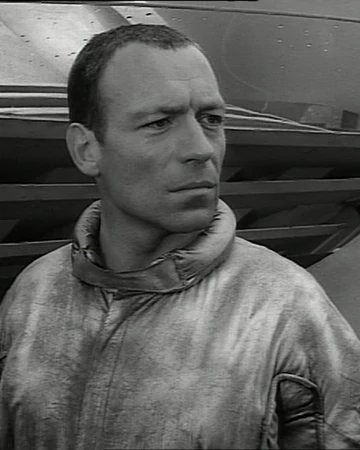
The Hour of the Generals
Interrogations reveal that not only are the two men human, but they are scientists sent to investigate the same phenomenon that attracted the Orion's attention. The two scientists come from Chroma, a distant world that was settled by refugees from the Second Galactic War. The earthly authorities had no idea that Chroma even exists and the Chromans, disillusioned after finding themselves on the losing side of the Second Galactic War, like it that way.
However, Chroma has emerged from hiding in the most dramatic way possible, since they are behind the increased solar activity. The why is still a mystery.
Naturally, the assembled generals are willing to assume the worst. After all, the Chromans were rebels and enemies in the Second Galactic War, plus they managed to hide from Earthly intelligence services for centuries. And they are heating up the sun, so of course they must be hostile. "This means war," Marshall Kublai-Krim (Hans Cossy) declares.
However, not everybody is quite as war-mongering as Kublai-Krim and Sir Arthur (Franz Scharfheitlin). Colonel Villa is a lot more cautious, because if the Chromans have the ability to heat up the sun, they could have other unknown technologies as well. "If we threaten them, they might press the button first," Villa says, "And we don't know what buttons they have."
A Secret Mission for McLane
McLane is relaxing in his swanky undersea bachelor pad, when he receives a call from a scientist named Dr. Stass, who wants to know if the soil samples the Orion crew took may have gotten mixed up or contaminated. Because the samples contain solar matter, which means that the planetoids could be transformed into mini suns. Sigh. The episode was doing so well with regard to scientific accuracy, but now we're back to imaginary science.

McLane believes that this new discovery might persuade Chroma to leave our sun alone and transform the planetoids instead. However, he can neither reach General Wamsler nor Colonel Villa, so he calls Tamara to ask her to use her clout to get him an interview with Villa. McLane catches Tamara in the shower and in the process gets a glimpse of what she looks like below the neck. Personally, I'm far more interested in how her beehive survived the shower.
Colonel Villa no more wants war than McLane does and agrees to send the Orion on a secret mission to Chroma, supposedly to return the two captured scientists, but in truth to negotiate. He also warns McLane that if anything goes wrong, the government will deny all knowledge of this mission. And if Earth decides to launch a preventive strike against Chroma, no one will care about the Orion and her crew.
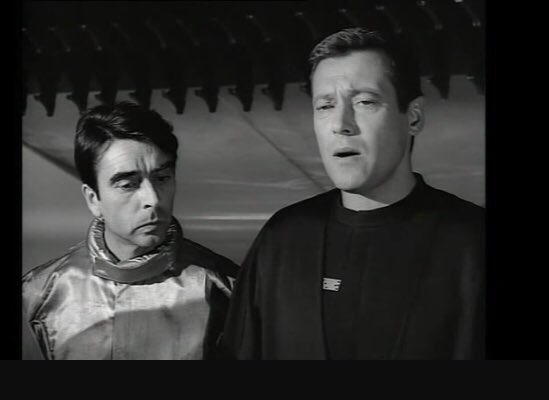
McLane is not deterred and so the Orion sets off for Chroma. The Chromans are hostile initially, but direct the Orion to a landing area. When the crew gets their first glimpse of Chroma, they are stunned how lush and green the planet is. "Looks like they also have nature preserves, just like us," Mario muses, "But why are they telling us to land our ship here?"
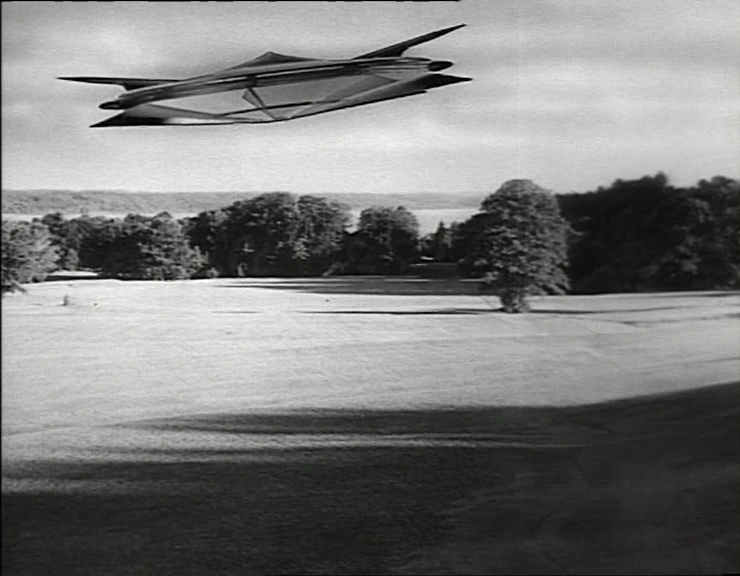
One thing I like about Orion is how the show casually imparts information about the wider world, even though ninety percent of it takes place either aboard spaceships or in the general staff's conference room. Not only do we learn more about the two galactic wars (briefly mentioned in the first episode), but we also learn that Earth has a serious pollution problem and that unspoiled land is apparently at a premium.
Planet of Women
After landing on Chroma, the Orion is surrounded by a magnetic field. Only McLane is allowed to leave with one of the captured scientists. The other scientist remains behind aboard to assure the ship's safety.
Chroma turns out to be not at all what McLane or anybody else expected. The world is not only lush and green, but also remarkably peaceful. The turreted government building (portrayed by Höhenried castle on the shores of the Starnberg lake) with its crystal chandeliers, shag carpets and wrought iron gates, is a far cry from the austere modernity of the conference rooms on Earth.
Even more remarkable is that every single Chroman official McLane meets is an attractive woman (one of them portrayed by Danish actress and singer Vivi Bach, Dietmar Schönherr's real life wife). For it turns out that Chroma is a matriarchal society. Men, as one of the Chroman women notes, are useful as gardeners, scientists and parade soldiers, but way too warlike for anything else.
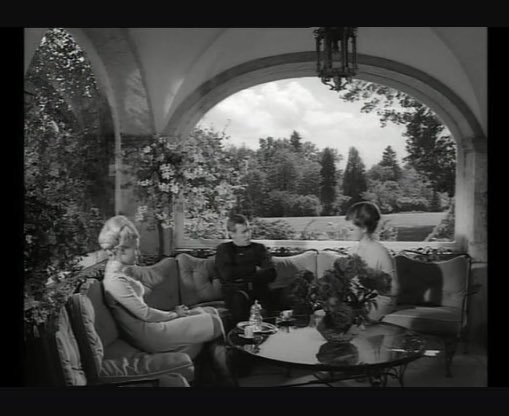
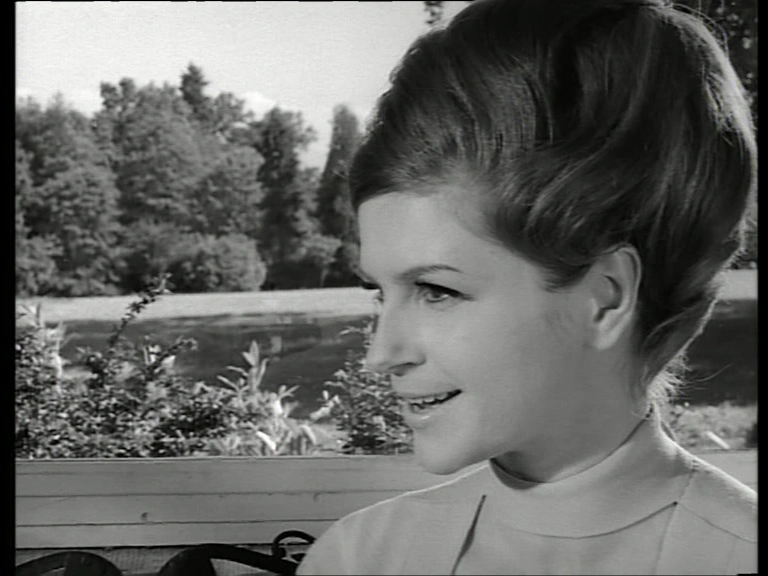
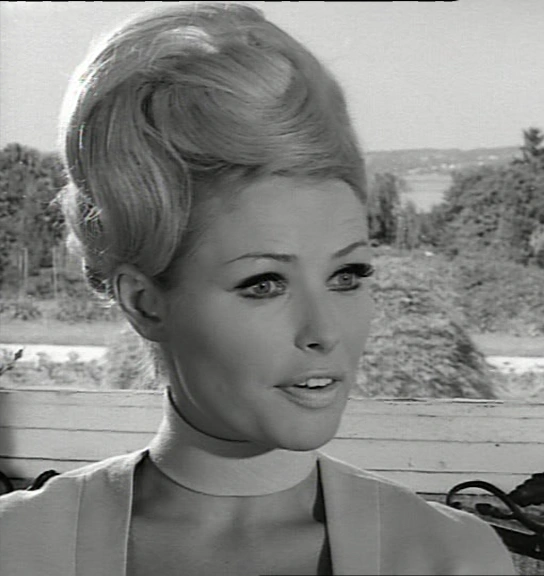

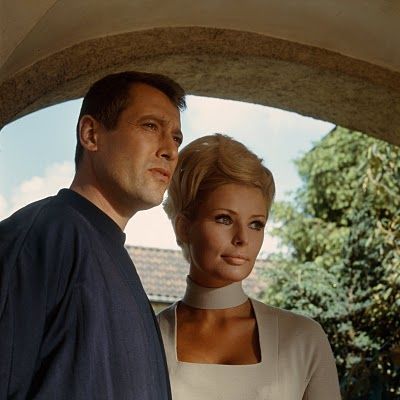
The planet controlled by women is an old science fiction cliché, found in "The Last Man" by Wallace G. West, "The Priestess Who Rebelled" and "The Judging of the Priestess" by Nelson S. Bond, "Consider Her Ways" by John Wyndham, "The Feminine Metamorphosis" by David H. Keller, "Virgin Planet" by Poul Anderson and many others. Such stories are born out of men's fear of female equality and often offensive. So how will Orion handle this timeworn plot?
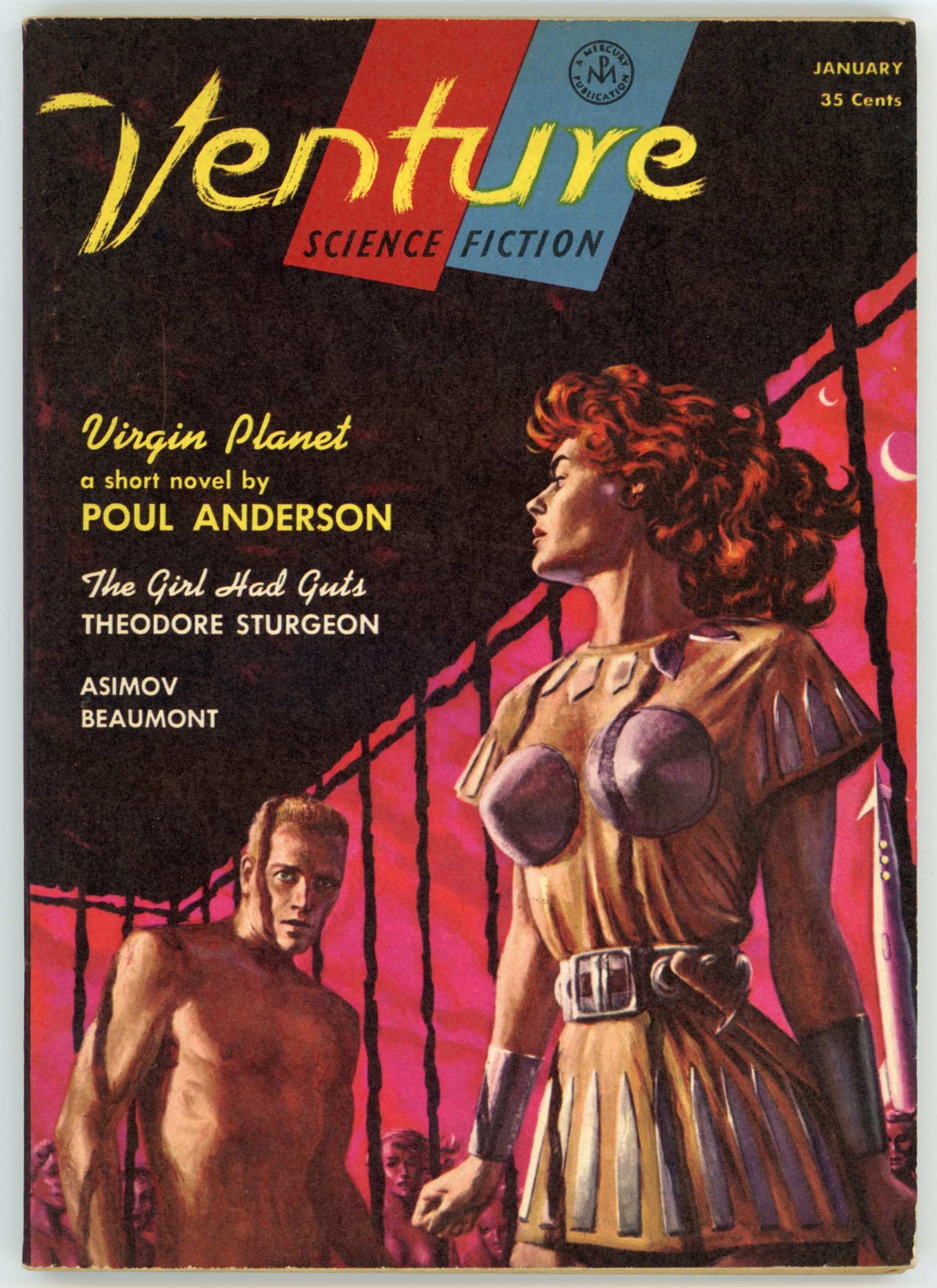
When McLane finally gets to meet Her, ruler of Chroma, (played by Margot Trooger, whom Journey readers may remember from her role as Cora Ann Milton in The Ringer and Again, the Ringer), he reacts like men always react in such stories, namely with incredulity and outrage, for how can these women not recognise or respect male superiority?
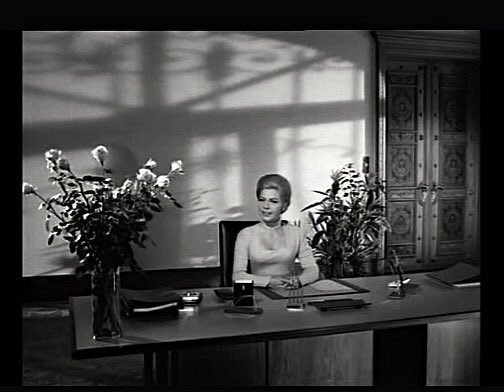
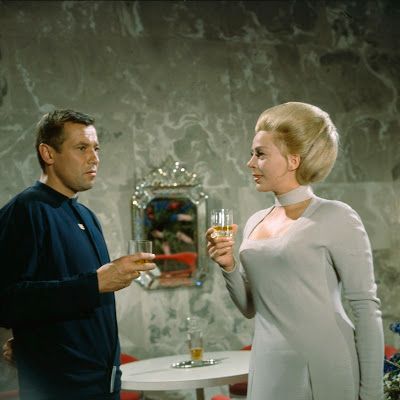
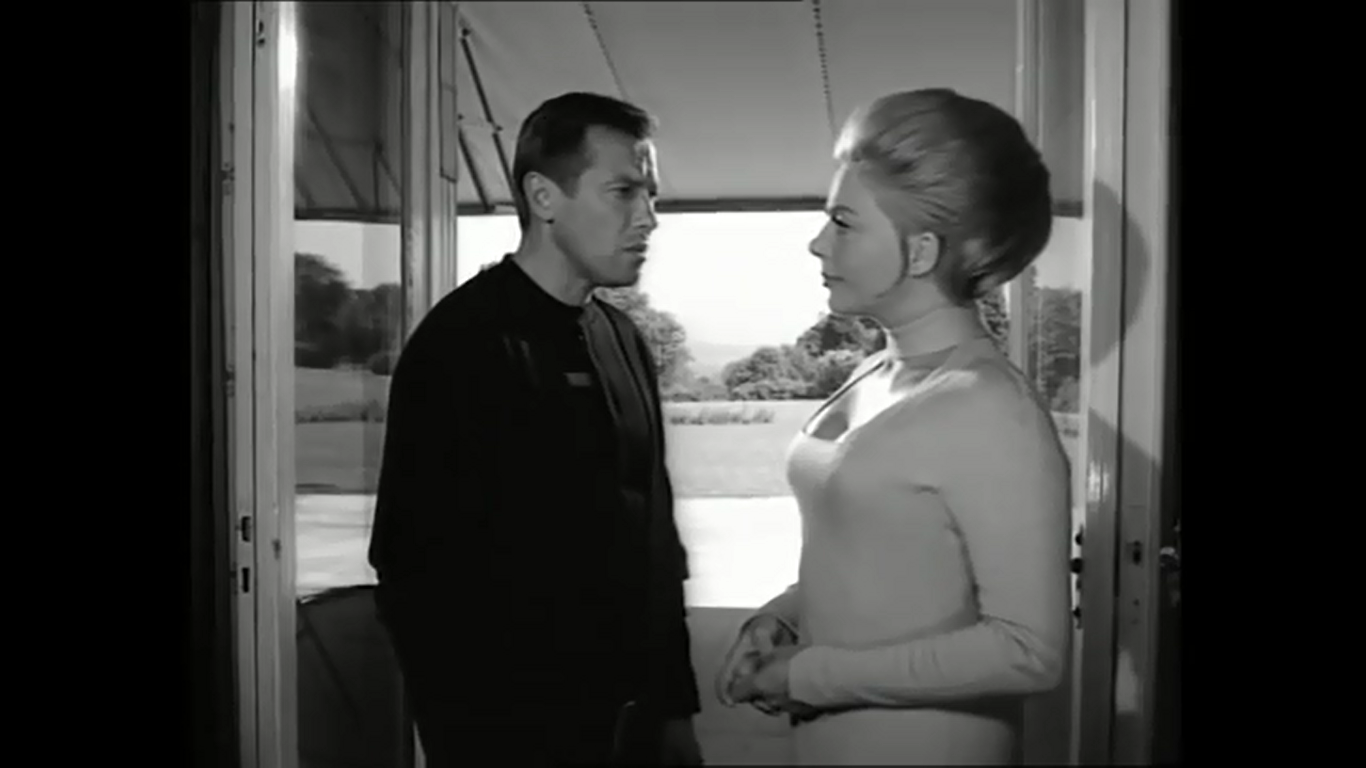
She, on the other hand, gives as good as she gets. At one point, when an outraged McLane is out of words, She suggests that he could try yelling some more. We also learn that Chroma's sun is fading, which is the reason for the attempt to heat up our sun. And no, the Chromans did not consider the effects their experiments might have, but then Earth scientists don't particularly care about that sort of thing either. However, She is willing to stop the experiments, should the data from the planetoids turn out to be promising.
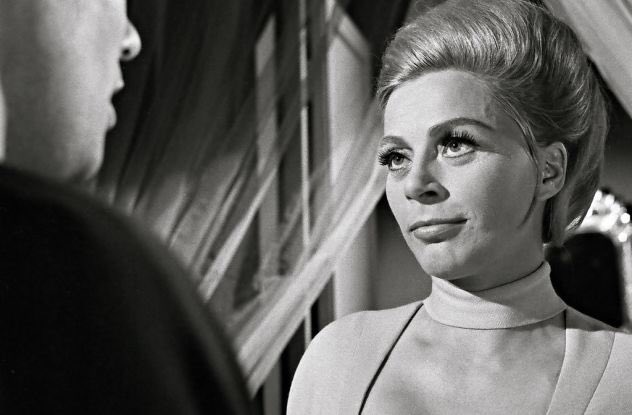
McLane tries to convince Her of the urgency of his mission and point-blank tells her that Earth will launch a preventive strike, if the experiments are not stopped at once. "That is so typical of Earth – and of men," She replies.
The scenes between McLane and Her are a delight. Dietmar Schönherr is excellent at balancing McLane's occasional macho outbursts with the fact that he is a good man and wants to stop a war and save lives. Meanwhile, Margot Trooger is so radiant and commanding as Her that you have no problems believing that She rules an entire planet.
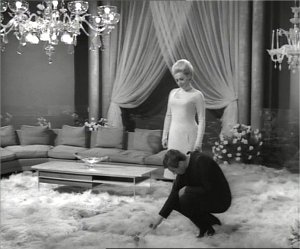
A Very Average Kiss
Things heat up, when the Orion receives a coded message that a preventive strike is imminent. Atan and Hasso are confident that they can break through the magnetic field, but they are no more willing to leave McLane behind than he would abandon any one of them.
So Tamara sets off with the remaining Chroman scientist to warn McLane. Unlike her male comrades, Tamara talked to the scientists and realised that the Chromans are more likely to listen to a woman.
Tamara is arrested and thrown into a cell together with McLane. Since they both believe they're about to die, the normally so uptight Tamara loosens up and tells McLane that she's sorry that they spent so much time arguing. And then Tamara does something she always wanted to do and kisses McLane.
"Well, now I'm relieved," Tamara says, once their lips part, "'Cause that was a very average kiss." McLane is about to sputter in outrage, but before he can Tamara decides to put McLane's kissing abilities to the test once more.
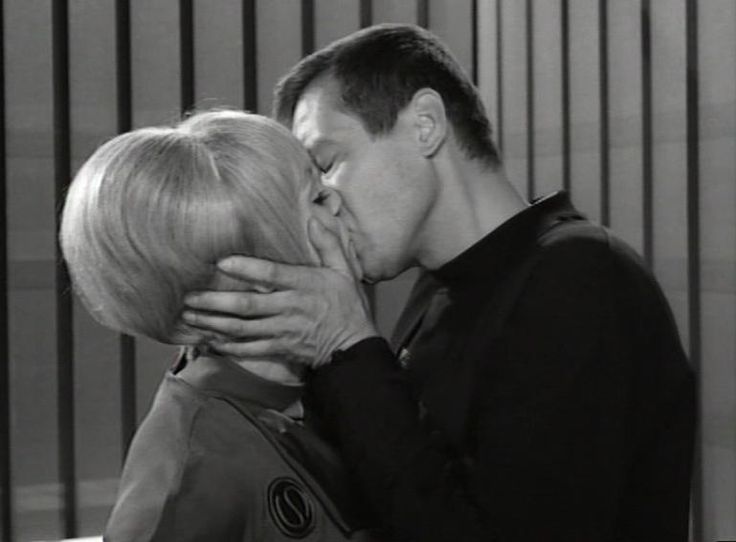
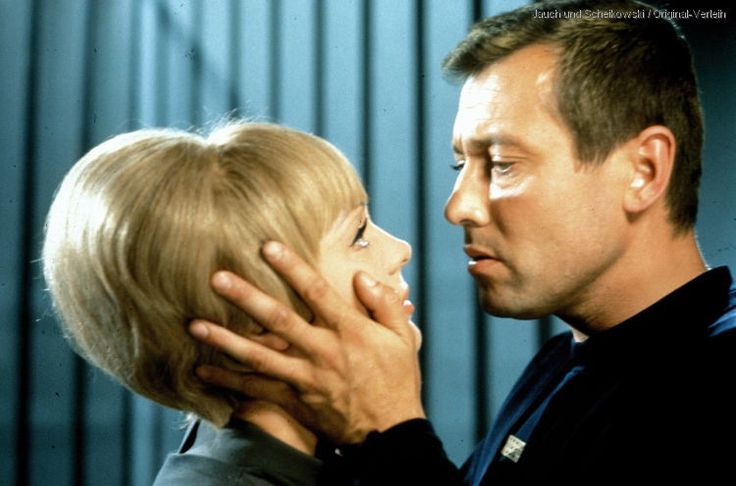
Our genre is not very good with emotions, romance, kissing and all that mushy stuff – see the uncomfortable kissing scenes in Forbidden Planet. But even if the bar is not very high, McLane's and Tamara's kiss is probably my favourite kiss in all of science fiction and Tamara's comment about McLane being a very average kisser made me love her even more.
Tamara's ongoing examination of McLane's kissing abilities is interrupted by Her, who shows up to inform them that She ordered the solar experiments stopped. When McLane wants to know why She waited until the last instant, She replies that She knew Earth would declare war as soon as she heard about the devastating effects of the experiments. However, She was playing for time, because She did not expect Earth to attack while the Orion was still on Chroma. But what can one expect of men?
However, while She may still not be a fan of men in general, She has developed a liking for a particular member of the male sex, namely Cliff Alister McLane. And so She has requested McLane to remain on Chroma as a special envoy. General Wamsler finds this hilarious, while resident womaniser Mario de Monti pouts that he was not chosen to stay on Chroma with all those attractive women. Helga and Tamara, meanwhile, are not amused at all.
It's a Women's World
Space Patrol Orion keeps getting better and better. "Battle for the Sun" took a cliched science fiction plot and did something interesting with it. Unlike most "Planet of Women" stories, the Chromans are actually in the right, while Earth – or at least the generals – comes off pretty badly.
The portrayal of the generals mirrors the general scepticism towards the military, particularly the higher ranks, in post-WWII West Germany. For people have not yet forgotten that it was war mongers like Sir Arthur or Marshall Kublai-Krim who sent out thousands of soldiers to die in a war that was already lost. Orion doesn't fall into the trap of portraying all military commanders negatively, either. Colonel Villa, General Wamsler, General Van Dyke, and of course McLane himself are all essentially good people who want to save lives. Meanwhile, the worries about pre-emptive strikes are inspired by contemporary fears about nuclear war, which would devastate West (and East) Germany.
Even though the focus is on McLane and Tamara, the rest of the Orion crew as well as the supporting cast like Villa, Wamsler, Spring-Brauner or Lydia Van Dyke all have distinct personalities. The show also tends to reuse the same characters in supporting roles. For example, the two scientists explaining the plot in "Battle of the Sun" are both characters we've seen before.
But what I love most about Space Patrol Orion is that the show gives us so many great and varied female characters. Our genre is not good at portraying women and one decent female character is often all we can hope for. Orion, however, gives us three female main characters in Tamara, Helga and Lydia Van Dyke as well as female guest characters such as Ingrid Sigbjörnson or Margot Trooger's Her.
Another great episode with a lot to say about war, gender and the environment.
Five stars.


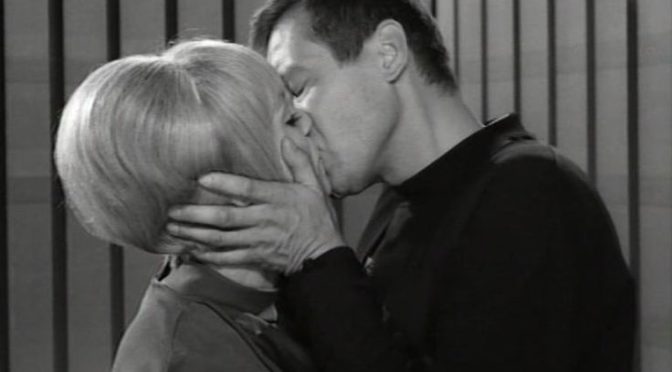
The village where I live is too staunchly Protestant for Martin's singers, though it's not unknown for Protestant kids to do something similar under the general name of Autumn singers, often on October 31st as the day Martin Luther nailed his 95 theses to the cathedral door in Wittenberg or November 10th for Luther's birthday. What we usually get are the Ümmesinger (something like "people who go around singing" in the local dialect) on New Year's Day.
I've long suspected that Halloween and Martin's singers have a common pagan origin. The common theme of carrying fire around the village and begging treats from each house feels like it should have a solid symbolic meaning. Something protective most likely.
Overall, a good episode, but I felt that it had problems once they got to Chroma. When McLane went into his first tirade about women being in charge, I shouted "What about General van Dyke!" at my television. His comments just felt wrong for a man who has willingly and apparently gladly taken orders for many years from a woman he respects. Or maybe he was letting out some of his frustration at Tamara being able to overrule him under certain circumstances.
I know where you live and yes, that area is staunchly Protestant. In my part of Germany, which is just as Portestant, we do the lantern processions and the singing, though we just call it lantern festival without the Catholic saint.
We have a trick or treating style tradition as well called "Nikolauslaufen" on St. Nicholas Day a.k.a. December 6, St. Nicholas apparently being considered an acceptable saint. The set-up is similar to other traditions of this type. Children go from house to house, sing a song or recite a poem and get candy or things like apples and tangerines in return.
Yes, McLane's shock and outrage about women in charge does not ring true, since he served under General Lydia Van Dyke for years and has no issue with her at all. And his frustration with Tamara is not so much the fact that she has authority, but that she can exert it on his ship.